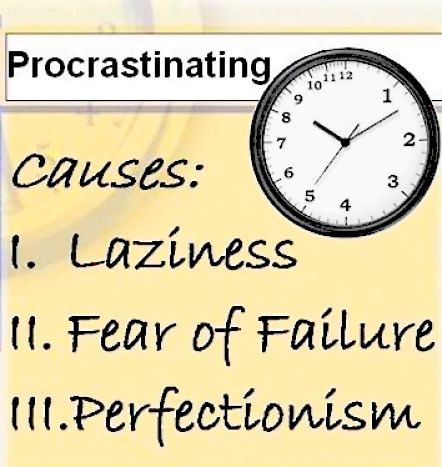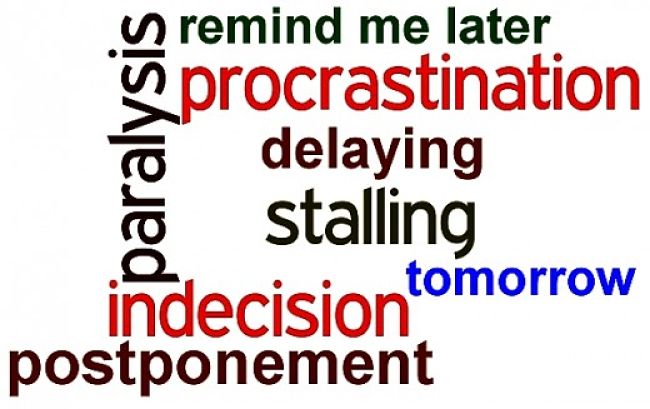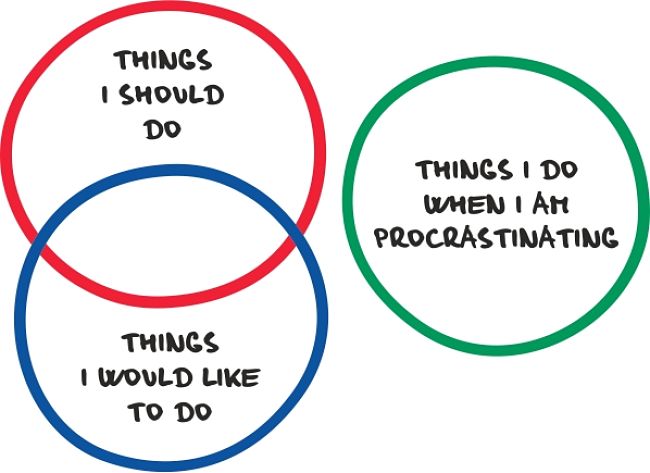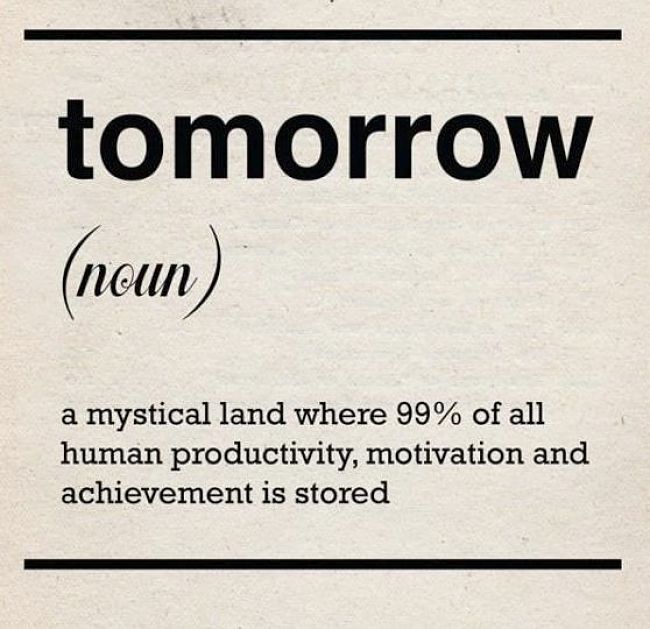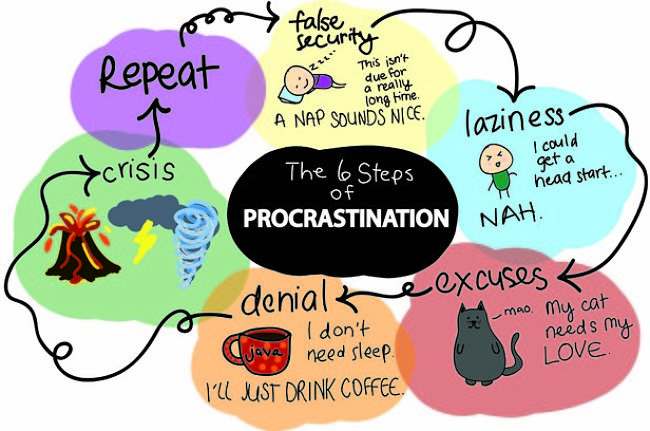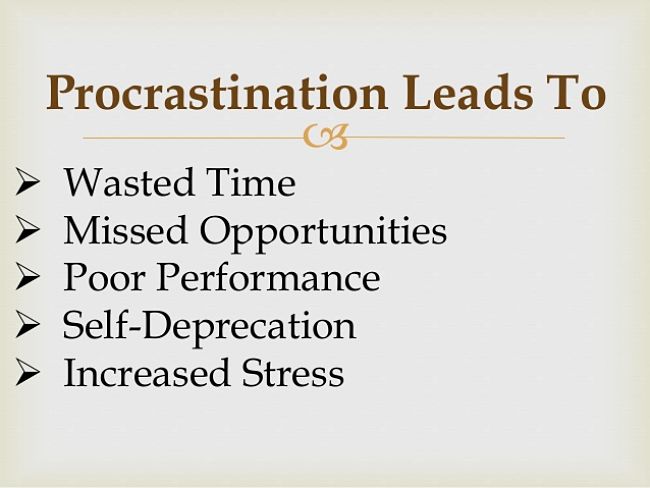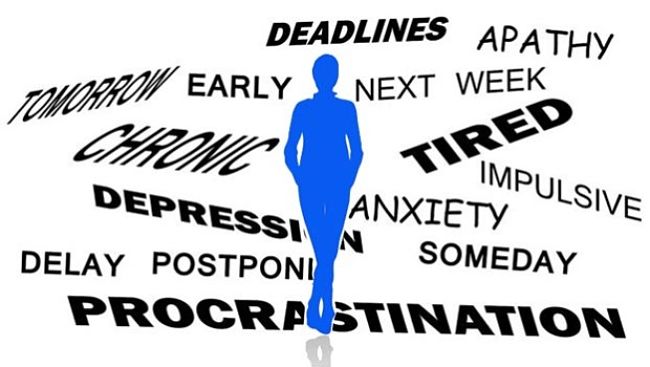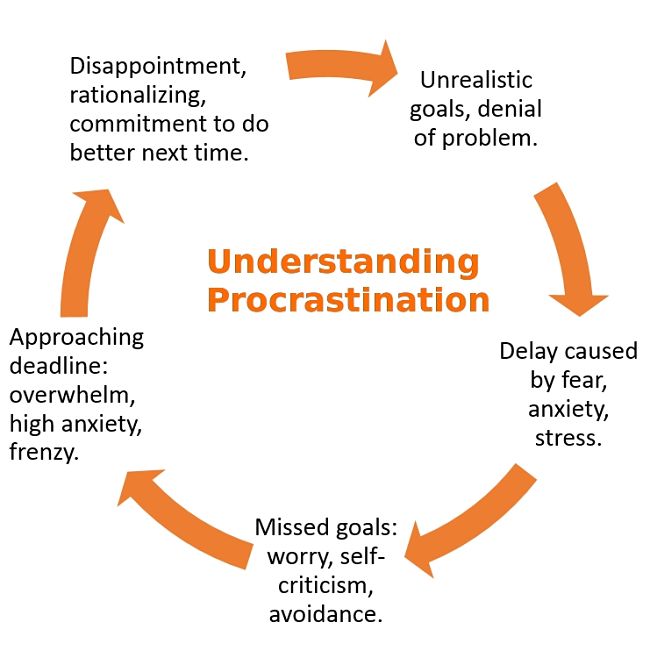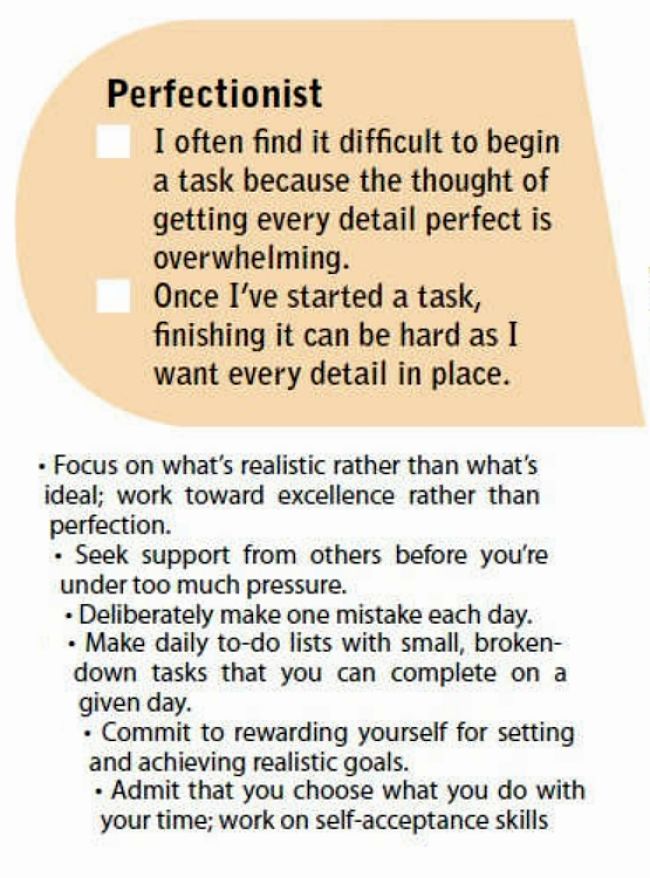Best Cures for Procrastination - Causes, How to Avoid Indecision
Most people procrastinate some of the time, putting things off, delaying making decisions, finding escape routes to avoid decisions. About 20% of people are chronic procrastinators, meaning that they procrastinate about most decisions all the time.
Many people are indecisive, 'decisional procrastinators', which means that they consciously, actively and deliberately postpone or avoid making a decision. In a sense they never get off first base, and reach the point where they have to decide. Their pathway to making a decision resembles a 'snakes and ladders' board that only has 'snakes' on it.
Understanding why people procrastinate is a good starting point, but finding a cure required more than this. It requires a conscious decision to actively 'Do it Now', 'Make the Decision'. This means being proactive a deliberating changing behaviors and attitudes to make progress.
Sometimes the tips to break out of bad habits requires actions without dwelling on the topic. Otherwise you can end up procrastinating about whether you will stop procrastinating and 'Just Do It'.
This article explores the causes of procrastination, why it occurs, how to find a cure, how to avoid indecision and delays in making decisions. It consists of a list of causes, symptoms and cures.


Common Causes, Symptoms and Cures for Procrastination
► Lack of Motivation, Writer's Block and Stagnation
Inspiration is largely a myth. The most prolific writers, artists, innovators and creative people work very regular hours and the regimented daily routine is their real inspiration. They start work on time no matter how uninspired they feel and work their allotted hours each day. The ideas flow from the routine and discipline. Some days are better than others but waiting until you feel inspired is very counter-productive as it is largely a myth. The best inspiration flows from getting started and doing the task.
Break the tendency to not do something or to postpone something because you don't feel like it. Feelings should not stop you - how will they make a difference. Getting started and finishing the task will make you feel better. One good cure for these delays is to offer yourself a reward for getting it done. This is what is called 'reframing' this means changing the negatives associated with the task to positives.
Who says people need to wait until they ‘feel like’ doing it before commencing? In many cases we may never 'feel like it'. This is using feelings in the wrong way. Just do it now!
► The Task is Hard, Boring, Unpleasant or Hard to Complete
If you keep postponing difficult or unpleasant tasks by letting your resolve slip or finding one excuse after another, try setting a setting a timetable with a series of 'if-then' decision steps. Decide when and where you will do the task and a set of alternatives if you get distracted.
If the outcome depends on someone else or some other factor than cover the bases so that there are alternative pathways for getting the job done. Focus on how good you will feel when the boring task is finally finished and done.
Deciding what you are going to do, and planning ahead for when and where it will be done helps. Also, think about what may happen, as a series of 'if and then' scenarios. If this happens, then I will do this. This means always having a Plan B to finish the task.
► Fear of Outcome or Its Consequences
Sometimes we procrastinate because we are afraid of failing. Sometimes we fear the changes that success in completing the task will bring and what it may mean. The best way to deal with fear is to meet it head-on and deal with it. Often the fear is minor or unwarranted. When you really think about it, many fears disappear. Worrying about it is often worse than just doing it and coping with the outcome. Re-frame the way you feel about the task and balance the negatives with positives.
► Overwhelmed by Complexity, Difficulty and Size of the Task
The obvious solution is break down the complex task into smaller ones. Often when you have started the complexities you fear suddenly disappear. Add rewards to each of the set of smaller tasks to keep you motivated and engaged.
► Rebellion, Laziness and Unwillingness to Lose Control
Often people resent having to do the task and feel that the task imposes upon and they feel they have lost control. But people lose their sense of control by not doing the task or postponing it. The task can become and external thing that bears down on them. Choosing to do the task shows we are in control, not the opposite. Rewards are a good way to overcome this aspect of procrastination.
► Lack of Focus, Distractions, Inability to Engage Properly, Fatigue
Distractions and excuses are everywhere and they seem to breed and become more common as the time to complete the task gets closer, especially when the task is difficult or unpleasant. You need to develop ways to ignore distractions and to deliberately eliminate them. People often have an over-inflated sense of the strength of their determination and will-power. Recognize this and minimize distractions by isolating yourself and focus purely on the task at hand. Multi-tasking does not work. It is better to do one thing at a time and then move onto the next task. Turn off the emails, switch off you phone and do whatever else is required to ensure you can focus purely on the task that needs to be completed. Having a 'Singular Focus' and 'wearing blinkers' is a much more efficient way of getting the job done more quickly and better.
It is very difficult to focus and avoid procrastinating when you are tired. So, get enough sleep, eat healthy food and exercise regularly. Do the more difficult and important things first thing in the morning before the distractions start to get in the way and you are feeling fresh.
Don't lose momentum and have a plan for each of the smaller steps required to complete it. Develop a schedule and try to keep to it. Once you start, and move logically through the steps the momentum will keep you going and on track to finish it.
► Lacking of Knowledge or Not Knowing How, Where and When to Do the Task
Often the big task can seem to be completely overwhelming. The obvious solution is to develop a plan breaking the big job down into smaller ones and identifying the resources and time required for each step. One you start the pathway will often be clearer and many of the obstacles you feared will have disappeared.
► Fear of Failure and Perfectionism
Often we put unreal expectations on ourselves and we can overinflate the judgment expected from others from imperfect outcomes. Good planning, finding the right resources and having a clear focus without distractions will mean we achieve the best possible outcome we can. After that, it does not really matter. The individual task is less important than the entire project in terms of what you have achieved. The other aspect is that once you have started, many brilliant ideals will surface and you can correct and learn from the mistakes made along the way. Procrastination is more of a failure than giving it a go. Often our expectations are far too high. If you achieve 80 percent of your goals for the task, this is a great success, not a failure.
► Sharing with Others and Being Publicly Accountable
Holding yourself publicly accountable for a task and telling a friend that you have begun an important task to reach a milestone in your life is a great way to keep motivated. Don't think of this as a fear of failure, but be more positive about it. Often your friends will help. Telling someone else about it also helps to avoid excuses and distractions. It is a great way if reinforcing your willpower and resolve. It also has great rewards when you can share the success.
